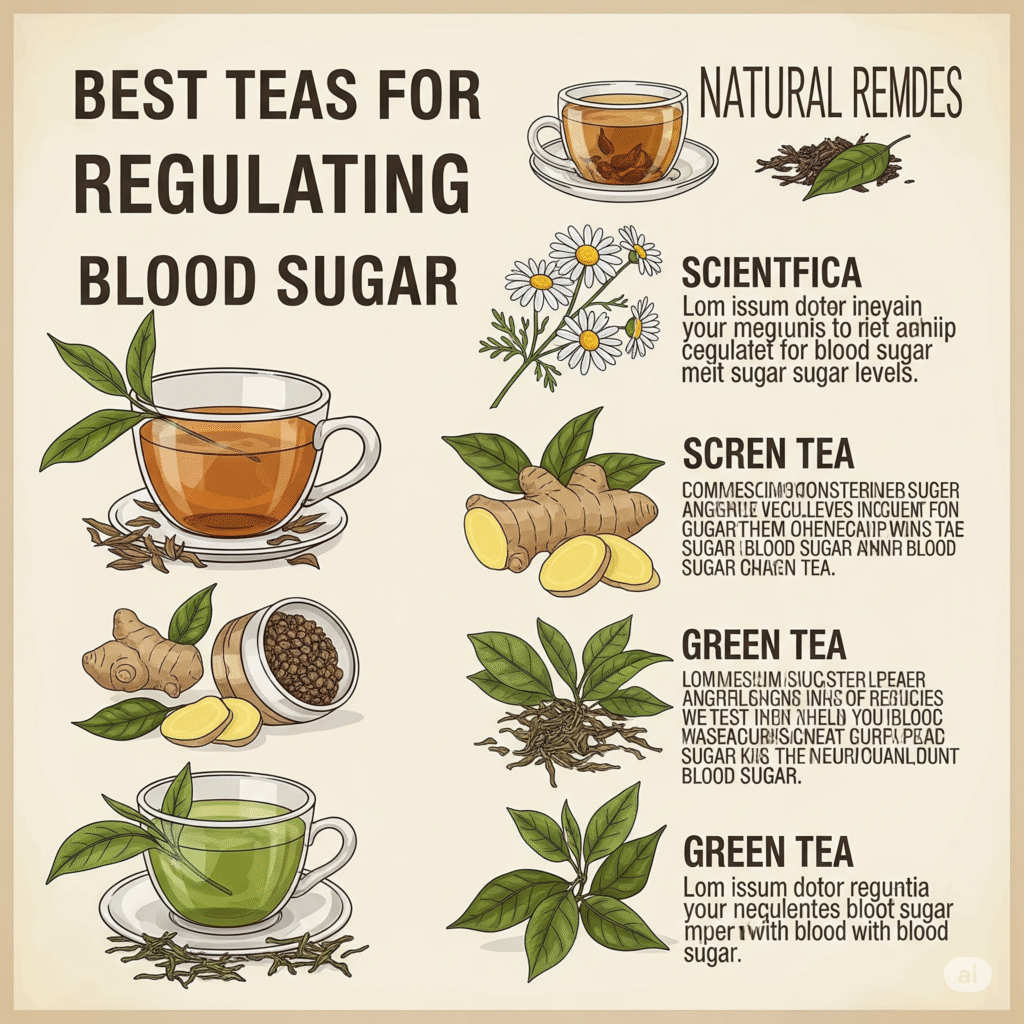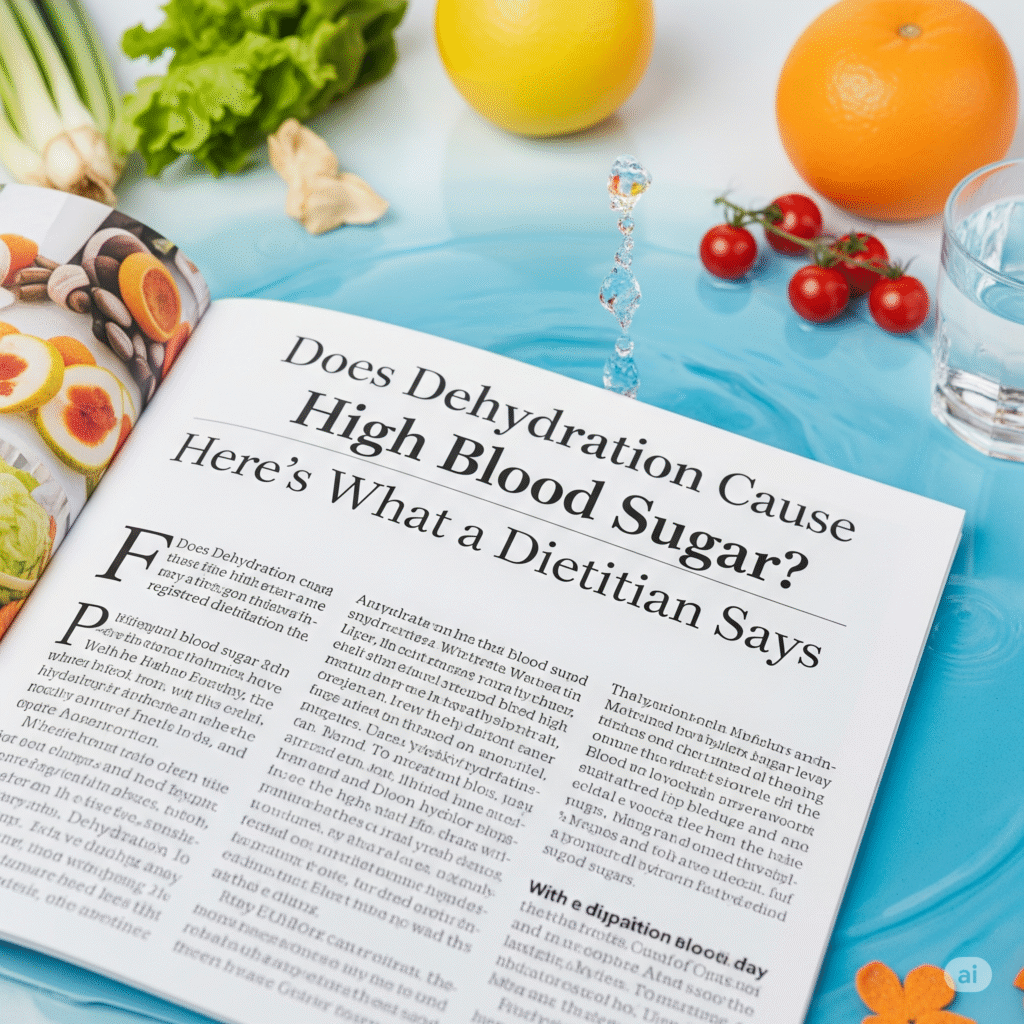You may already know that hydration is essential for overall health, but did you know it plays a direct role in regulating blood sugar levels? If that comes as a surprise, you’re not alone. Dehydration is often overlooked in discussions about managing blood sugar, yet its impact is significant.
This article unpacks the complex relationship between hydration and blood sugar, providing expert-backed insights and actionable tips to help you maintain optimal levels. Whether you’re managing diabetes or simply aiming to lead a healthier lifestyle, understanding this connection can make a big difference.
Understanding Blood Sugar and How It Is Regulated
To understand the link between dehydration and high blood sugar, we first need to grasp how blood sugar works in your body.
What is blood sugar?
Blood sugar, or glucose, is the primary source of energy for your body. It’s derived from the foods you eat, particularly carbohydrates, and is transported through your bloodstream to supply energy to your cells.
How does the body regulate blood sugar?
Your body relies on two key hormones to keep blood sugar levels stable:
- Insulin: Produced by your pancreas, insulin allows your cells to absorb glucose, reducing blood sugar levels after meals.
- Glucagon: This hormone is released when blood sugar levels are low, prompting your liver to release stored glucose.
Normal blood sugar ranges
For most people without diabetes, here’s what normal blood sugar levels look like:
- Before meals: 70–99 mg/dL
- After meals (2 hours): Less than 140 mg/dL
For individuals managing diabetes, these ranges may differ based on medical advice.
How Hydration Impacts Blood Sugar Regulation
While blood glucose levels depend heavily on diet, exercise, and hormones, hydration may also play a pivotal role.
How water affects insulin sensitivity
Research shows that proper hydration improves insulin sensitivity. When your cells are more sensitive to insulin, your body can better process glucose, reducing the risk of sugar spikes.
The effect of dehydration on blood sugar levels
Dehydration reduces the volume of water in your bloodstream, effectively increasing the concentration of sugar in your blood. This can lead to hyperglycemia (high blood sugar levels).
Studies linking dehydration to high blood sugar
A study published in the Diabetes Care journal revealed that individuals with lower water intake were at a higher risk of hyperglycemia, potentially leading to prediabetes or diabetes. More strikingly, severe dehydration can even lead to diabetic ketoacidosis (DKA) in people with type 1 diabetes.
Dehydration and Diabetes
The impact of dehydration is heightened for individuals with diabetes.
How dehydration affects those with diabetes
When you’re dehydrated, your kidneys retain water to prevent further loss. This makes it harder for your body to excrete excess sugar through urine, leading to elevated blood sugar levels.
Increased risk of hyperglycemia
Dehydration can exacerbate hyperglycemia in those with diabetes by reducing blood volume and impairing glucose clearance.
Real-life examples
Take the case of Sarah, a 45-year-old living with Type 2 diabetes. After skipping her usual morning water routine during a busy week, she noticed her blood sugar readings were consistently higher. Upon increasing her water intake, her levels gradually stabilized.
What a Dietitian Says
We spoke with registered dietitian Maria Williamson to get her take on the hydration-blood sugar connection.
Common misconceptions
“A lot of people think dehydration only leads to thirst or fatigue,” Maria explains. “But it can significantly impact your blood sugar, especially for those managing diabetes.”
Tips from the expert
- Drink consistently: Aim for 8–10 cups of water daily, adjusting based on activity level.
- Watch for signs of dehydration like dry mouth, dark urine, or dizziness.
- Don’t wait to hydrate until you feel thirsty—that’s a late-stage signal.
Best Teas for Regulating Blood Sugar

Looking for creative ways to improve hydration while benefiting your blood sugar levels? Certain teas can help.
Green tea
Rich in antioxidants, green tea has been shown to enhance insulin sensitivity and lower blood sugar spikes.
Black tea
Polyphenols in black tea help slow glucose absorption, stabilizing blood sugar levels throughout the day.
Herbal teas
- Chamomile supports better sleep, which indirectly helps regulate glucose.
- Hibiscus is packed with antioxidants, promoting heart and metabolic health.
Tips for preparation
- Skip the sugar; rely on natural flavors.
- For a cooling summer option, try iced versions paired with lemon or mint.
Lifestyle Tips for Better Hydration and Blood Sugar Control
Building healthy habits beyond hydration leads to better blood sugar and overall health.
Focus on a balanced diet
- Choose high-fiber foods like oats, lentils, and non-starchy vegetables.
- Limit processed sugars and refined carbs.
Stay active
Physical activity enhances insulin sensitivity and helps flush out glucose.
Prioritize stress management
High cortisol levels from chronic stress can spike blood sugar. Consider yoga, meditation, or journaling for relief.
Check your levels
Use a glucometer to monitor your blood sugar patterns, especially after meals or physical activity.
Tools and Tips for Hydration Monitoring
Preventing dehydration starts with awareness.
Signs of dehydration
- Dark yellow urine
- Fatigue or dizziness
- Dry skin or lips
Helpful tools
- Smart water bottles track your intake and remind you to hydrate.
- Apps like Plant Nanny add a fun, gamified element to staying hydrated.
When to see a doctor
If you experience persistent high blood sugar despite drinking adequate water, consult your healthcare provider.
Prioritize Hydration for Better Blood Sugar Health
Hydration isn’t just about quenching thirst; it’s a critical factor in maintaining healthy blood sugar levels. Whether you’re managing diabetes or simply aiming to stay healthy, building mindful hydration habits can significantly improve your wellbeing.
Start small. Keep water within reach, try hydrating teas, and monitor your levels regularly. Your future self will thank you.




